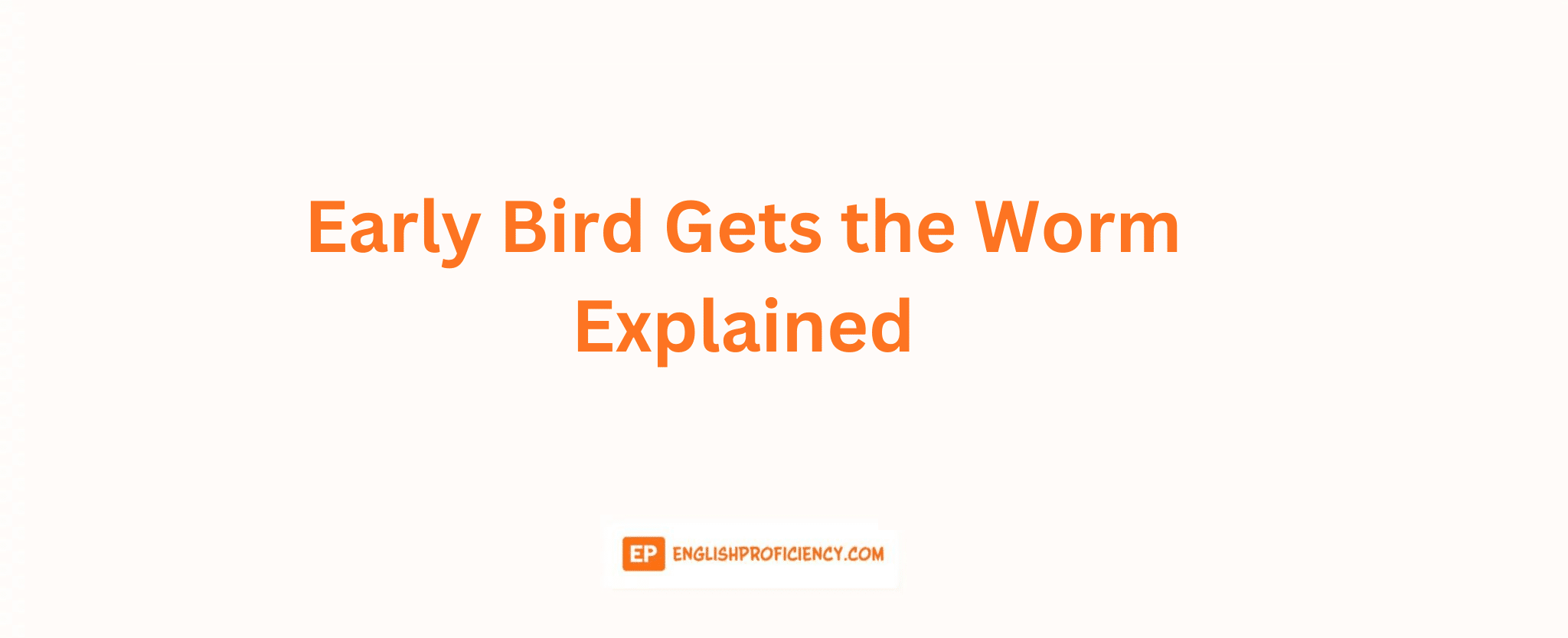Have you ever heard the saying, “The early bird catches the worm”? It’s a timeless piece of advice that holds a lot of wisdom. But what does it really mean, and does it hold true in the real world? Let’s dive into this age-old adage and unravel its meaning.
Understanding the Full Quote
On the surface, the saying seems straightforward: waking up early leads to success. But it’s much more than a mere wake-up call. At its core, this saying is a testament to the importance of seizing opportunities with vigor and determination. It’s about recognizing that the path to success is often paved with proactive actions and timely decisions.
How the Bird Nabs the Worm
Imagine a bird, perched atop a branch, scanning the ground below for sustenance. Suddenly, it spots a wriggling worm, a delicacy waiting to be claimed. Without hesitation, the bird swoops down with precision and snatches the worm from its earthly abode. This swift and decisive action exemplifies the essence of the saying – the early bird’s ability to capitalize on opportunities with agility and foresight.
Is It Just a Metaphor?
While the imagery of birds and worms may seem mundane, the saying serves as a powerful metaphor for life itself. The “early bird” symbolizes individuals who are proactive, resourceful, and keen-eyed in their pursuit of goals. It’s a metaphorical reminder that success often favors those who take initiative and remain vigilant in the face of challenges.
Responding to “The Early Bird Gets the Worm”
When we hear “The early bird gets the worm,” it’s all about taking action quickly to seize opportunities. But there’s another saying that challenges this idea: “The early bird gets the worm, but the second mouse gets the cheese.” Let’s break down what this means and how we can respond to it:
- Two Strategies: Quick vs. Patient
The first saying suggests that acting fast leads to success, while the second one implies that sometimes waiting and planning can be better. It’s like comparing rushing to be first with being smart and strategic about when to make your move.
- Finding Balance: Timing and Strategy
Success isn’t just about being fast or waiting—it’s about finding the right balance. It’s about knowing when to act quickly and when to hold back, observing and planning for the best outcome.
- What to Do: Be Smart and Swift
In response to “the early bird,” we should aim to be both smart and swift. Sometimes, being first matters, but other times, it’s better to wait for the right moment. By being flexible and thinking ahead, we can increase our chances of success.
Does the Early Bird Truly Succeed?
In the literal realm of avian biology, the early bird indeed gets its prey. However, in the broader context of human existence, success is not merely contingent upon waking up early. It’s about cultivating a mindset of readiness, preparedness, and relentless pursuit of excellence. While timing plays a role, true success is born out of consistent effort, strategic planning, and unwavering determination.
Finding Your Path
Life doesn’t come with a one-size-fits-all manual. Whether you resonate more with the early bird or the second mouse, what truly counts is recognizing when to make your move and when to hold back. By striking a balance between swiftness and strategy, you can chart your course towards success with confidence and clarity.
Next time you hear “the early bird catches the worm,” think beyond its surface meaning. It’s not just about being quick off the mark; it’s about being proactive, spotting opportunities, and navigating your journey with determination.
With this insight, may you embody the spirit of the early bird—always alert, always prepared to seize the day, and carve your unique path to success in the grand adventure of life.

